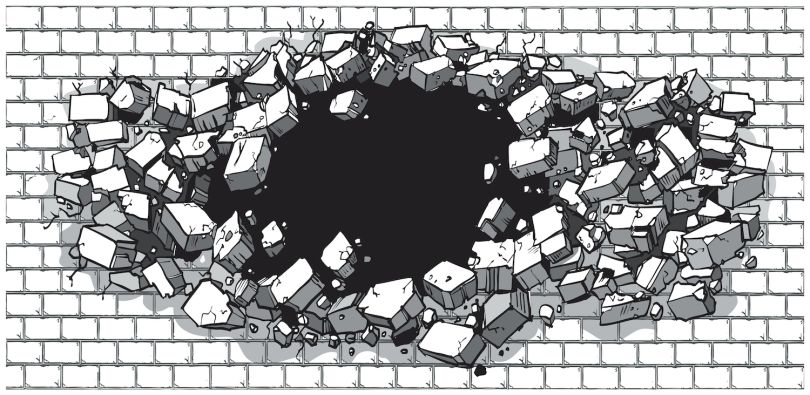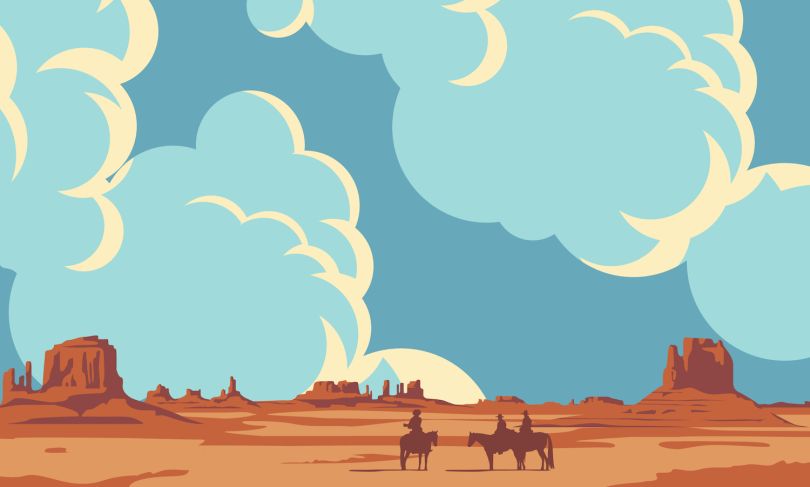Back in 2016, Drupal creator Dries Buytaert published a rallying cry on his blog, urging readers to “save the open web.” WordPress founding developer Matt Mullenweg boosted the post on his own blog the next day.
Buytaert and Mullenweg took the virtual stage at the 2020 Web Summit alongside Mozilla Chairwoman and CEO Michelle Baker and Digital Trends Editor-in-Chief Jeremy Kaplan for a talk titled “Open Web, Open World.”
The open web, they argued, is still an endangered resource.
“I was born in an era of the open web. And I feel like it’s been eroding slowly.”
“I was born in an era of the open web. And I feel like it’s been eroding slowly,” Buytaert said in a question-and-answer session after the talk. “At some point, it might be hard to turn back.”
But the panelists named plenty to be hopeful about as well. Adoption of open-source web systems and frameworks like WordPress, Drupal and Mullenweg’s webops venture Automattic is growing steadily, even in countries with closely regulated webs.
The trick, panelists said, will be for open web solutions, like traditional websites, to become just as easy to use as private, centralized solutions, like Facebook pages. But that’s easier said than done.
What Is the Open Web?
The philosophical underpinnings of open web are similar to those of open source. In short, it means websites run on standardized, open-source technology, rather than being tied to vendors. Web users control their own content aggregators, like RSS feeds, rather than relying on the proprietary algorithms of social feeds. And governments don’t restrict access to any website that’s built using open standards, like HTTP.
“If you are able to build your business on open source, you will have a level of autonomy, control and agency over your future that’s unmatched with any other type of software. The open web is an extension of that,” Mullenweg said. “I don’t know why you wouldn’t build something that way in 2020. It is so clearly the way the world’s going, and you should be on the right side of history.”
People spend much more time on the open web than on any single closed platform, Mullenweg said in a 2019 interview with TechCrunch’s Romain Dillet. And, at the time of that interview, one third of the world’s websites ran on WordPress. But the open web is still messy and hard to navigate, compared to clean, simple interfaces like Google’s search engine or Apple’s App Store.
“I don’t know why you wouldn’t build something [using open source] in 2020.”
That might be due to economics. Open web companies don’t receive the same investment that “walled garden” platforms like Facebook and Medium have, web operations company Pantheon’s CEO Zack Rosen wrote. That means they don’t have the resources to build products that compete. (Three years after Rosen penned that theory, however, Automattic raised $300 million from Salesforce and then another $80 million from an undisclosed investor.)
It also might be due to a lack of regulation. Government regulation of algorithms hasn’t kept pace with AI’s advancement. Platforms can fine-tune their algorithms to serve us the content that keeps us on-app — for better or for worse.

A Decentralized Web. So Like, Blockchain?
Not quite.
Like the open web, blockchain is decentralized and accessible to anyone, but, at least right now, the infrastructure for widespread, blockchain-based technologies is still being imagined. When I spoke with Aragon researcher Maria Gomez about the implications of blockchain and token-based incentive systems for everyday internet users, she described the evolution of the web this way:
First, there were interconnected sites where people placed information. Second, there were centralized platforms where people disseminated information. Next, perhaps blockchain and smart contracts will give people a way to find consensus and act on that information.
In that sense, the open web is less a vision for the future than a memory of the past. Despite being a goal for technologists like Mullenweg and Buytaert, the open web could be considered a holdover from the internet’s first wave.
As one Web Summit attendee pointed out, few featured companies at the conference were building on blockchain or talking about the blockchain advances some refer to as “Web3.” According to Mullenweg, that’s because blockchain isn’t a catch-all solution when it comes to the future of the web.
“A distributed ledger was not a good fit for a lot of the problems that we’re trying to solve on the web.”
People who pitch blockchain as the “next generation” of web use are probably trying to sell something, Mullenweg said — such as a new startup in the blockchain space. In reality, blockchain is a specific means to a few specific ends.
“For a certain class of problems, a blockchain approach is correct,” he said. “I think it was sold as the future of everything. And it was very clear when people started trying to do that that, in fact, a distributed ledger was not a good fit for a lot of the problems that we’re trying to solve on the web, or might even be a hindrance in terms of speed, scalability, privacy, etc.”
Saving the open web, Buytaert said, likely won’t require new, groundbreaking technologies. Rather, it will require time, as the foundational building blocks of the word wide web receive the investment — in money and development — they deserve.
“I think it just takes more time to build all of the pieces, and, at some point, they’ll come together and we’ll be able to really leverage them as we build the future of the web,” he said.
What’s the Issue With a Closed Web?
According to open web proponents, the issue is largely the platforms.
Today, the term “platform” has a variety of meanings. But, in this case, it’s the social-graph using, algorithm-wielding, friend-collecting applications that use their intimate knowledge of content distribution — and users’ preferences — to keep us logged on longer and longer.
These platforms centralize our information: We spend more time consuming content served to us on Facebook, for example, than what we hunt down on independent sites. Companies or individuals may choose to direct people toward their Instagram profiles rather than their web pages. And as more and more of our content consumption happens on closed platforms, concerns over content moderation, misinformation, abuse and “echo chambers” get more intense.
Other platforms, like Amazon or Google, spin up marketplaces, which they then have the power to influence — both have been accused of favoring their own products in search results.
This alleged manipulation of users’ content-consumption or buying decisions relies on the platforms’ staggering collections of user data and opaque data privacy practices. (For the record, these huge data collections have also been used for social good, including coronavirus research.)
“An algorithm can probably predict what you’re likely to do in a setting, or motivate you to behave in certain ways, more precisely than even the people around you.”
Data privacy, Baker said, can mean both the right to avoid surveillance and the right to weigh in on how personal data is leveraged. Right now, users don’t have enough input into either, the panelists agreed.
“One thing about the data that’s out there, and the aggregation of data and the ability to buy data, is that an algorithm can probably predict what you’re likely to do in a setting, or motivate you to behave in certain ways, more precisely than even the people around you,” Baker added.
As 5G and internet-of-things technologies provide companies with more ways than ever to connect with users and collect data, discussions of the value of an open web take on a new urgency.

What Are Some Potential Solutions?
Fostering a reinvigorated open web would likely require more regulation of large platforms, Buytaert said. If a platform’s data and AI practices were subject to consumer-protection laws, its user experience would change, and users might become more likely to seek content and e-commerce products elsewhere.
He compared the current state of algorithm regulation to America prior to the formation of the Food and Drug Administration, when manufacturers pumped out foods and medicines with little oversight or accountability.
“You could argue that we need something similar for software algorithms that have a high impact on society,” he said. “There are all sorts of disadvantages to [federal regulation], but there are also advantages. We can hopefully trust things more, just like we trust where drugs come from — large pharmaceutical companies that have gone through the process of getting their drugs approved.”
“What are the tools that might protect me, that might defend me, that might go out and actually engage with other machine learning systems on my behalf?”
In terms of data regulation, companies could use labels — similar to the ones the FDA requires — to share with users how their data will be leveraged and help them make informed choices.
Currently, users generally can access documents explaining a platform’s data policies, but those documents are long and tough to understand.
“They don’t ship a chocolate bar with a 30-page document that explains all the possible things that might be going on when I eat a bar of chocolate,” Buytaert commented.
Short, straightforward summaries would be more helpful, he said. Just like he might choose to put a chocolate bar back on the shelf if it contained too much sugar, users might choose to take their internet activity elsewhere if a platform’s “label” indicated that it sells their data to third parties or tracks them while they’re not using the application.
Last, Baker suggested that open web tools themselves could build products that protect consumers from predatory algorithms or data practices, citing how browsers often use data to “reach out and do things” on behalf of users. If open web solutions had access to the same troves of user data the platforms did, they could use that data to create machine learning models that counteract some of the more manipulative forms of algorithmic marketing or growth engineering.
“Maybe you need companies that have enough information to build responses,” Baker said. “I’m living in a world of AI and machine data. We know that. What are the tools that might protect me, that might defend me, that might go out and actually engage with other machine learning systems on my behalf?”
What’s in the Way of an Open Web?
Despite the purported benefits, there are some big hurdles in the way of an open web.
The primary one is convenience.
“There’s a reason people create Facebook pages, because they can create one in probably 30 seconds,” Buytaert said. “So, if I think about, ‘How can the open web win?’ I think we need to make it probably twice as easy as, let’s say, Facebook. Because that’s the only way you can pull people off Facebook to something else. You don’t just match it. You actually have to be better.”
Another is that the “platforms have bad privacy practices” argument is an incomplete one, according to Mullenweg. Social media platforms, for instance, were purposefully designed with poor data portability — i.e., it’s impossible to drag and drop your followers, social graph or interest graph to another platform. That walled garden keeps users on-app, but it also protects their data from bad actors outside the wall. Open-web competitors would have a hard time recreating that level of security.
“That’s something I haven’t really figured out,” Mullenweg said. “Obviously, privacy is probably a fundamental human right, but I don’t know how we’re going to map that while allowing more portability for open source and open competitors.”
“That’s the only way you can pull people off Facebook to something else. You don’t just match it. You actually have to be better.”
Beneath these obstacles, though, lies a more fundamental question: Can any web infrastructure, new or old, resolve the tension between free thought and a free market?
“Advertising is fundamentally about influence and manipulation. Is an advertising-driven economy, particularly a machine-learning or AI-driven one, compatible with democracy?” Mullenweg asked.
“We’ve had advertising-based economies for a while,” Baker responded, going on to discuss the growing understanding of the relationships between information and influence. “I’m still hopeful that we haven’t reached the necessary end of democracy here.”
“I like your optimism,” Mullenweg said.
‘We’ve Been Here Before’
The web may feel like it’s hurtling toward a collection of big, walled gardens — but that’s nothing new, Mullenweg said. There was a time when the web was AOL and CompuServe and other proprietary internet service providers.
“We’re at something which isn’t as low as that, but it has some downsides,” he said. “We’ve been there before and we will be there again. But folks, Dries and I are fighting really hard for the open side of things.”
“Freedom can be cyclical.”
That fight, in plenty of ways, is working. Even as some countries limit which sites their citizens can access, others are supporting unprecedented levels of connectedness for ordinary people. And as negative sentiment toward centralized platforms builds, demand for accessible, user-owned services may grow along with it.
“Freedom can be cyclical,” Mullenweg said. “Sometimes, it doesn’t go in a straight line.”




